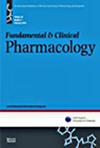The protective effect of pregabalin and xanthenone on testicular ischemia/reperfusion injury in rats
Abstract
Background
Torsion of the spermatic cord is a hazardous and common urologic issue. The current work evaluates the possible protective effect of pregabalin (PGB) and xanthenone (XAN) in testicular ischemia/reperfusion injury induced by testicular torsion/detorsion in rats.
Materials and methods
Seven groups of adult male Wistar albino rats were allocated randomly into seven groups, namely, sham control, torsion/detorsion (T/D), PGB 50 mg/kg, PGB 100 mg/kg, XAN 1 mg/kg, XAN 2 mg/kg, and PGB 50 mg/kg plus XAN 1 mg/kg groups. Serum cholesterol and testosterone levels were determined. Also, the levels of malondialdehyde (MDA), reduced glutathione (GSH), nitric oxide (NO), superoxide dismutase (SOD), tumor necrosis factor-α (TNF-α), nuclear factor kappa B (NF-қB), angiotensin (Ang) II, Ang-(1–7), and angiotensin-converting enzyme2 (ACE2) were assessed in testicular tissue. Immunohistochemical analysis of heme oxygenase-1 (HO-1) and caspase-3 was performed. Finally, the histopathological examination of the testicular tissues was performed.
Results
The PGB 50 mg/kg, PGB 100 mg/kg, XAN 1 mg/kg, XAN 2 mg/kg, and PGB 50 mg/kg plus XAN 1 mg/kg groups showed a significant decrease in serum cholesterol, MDA, NO, TNF-α, NF-қB, and Ang-II levels coupled with a significant increase in both testosterone and ACE2 expression. Furthermore, all test groups showed a significant improvement in the histopathological picture with a reduction in caspase-3 and an increase in HO-1 immunoexpression in testicular tissue.
Conclusion
PGB and XAN may have promising effects on preventing testicular T/D injury through antioxidant, anti-inflammatory, and antiapoptotic actions.

 求助内容:
求助内容: 应助结果提醒方式:
应助结果提醒方式:


